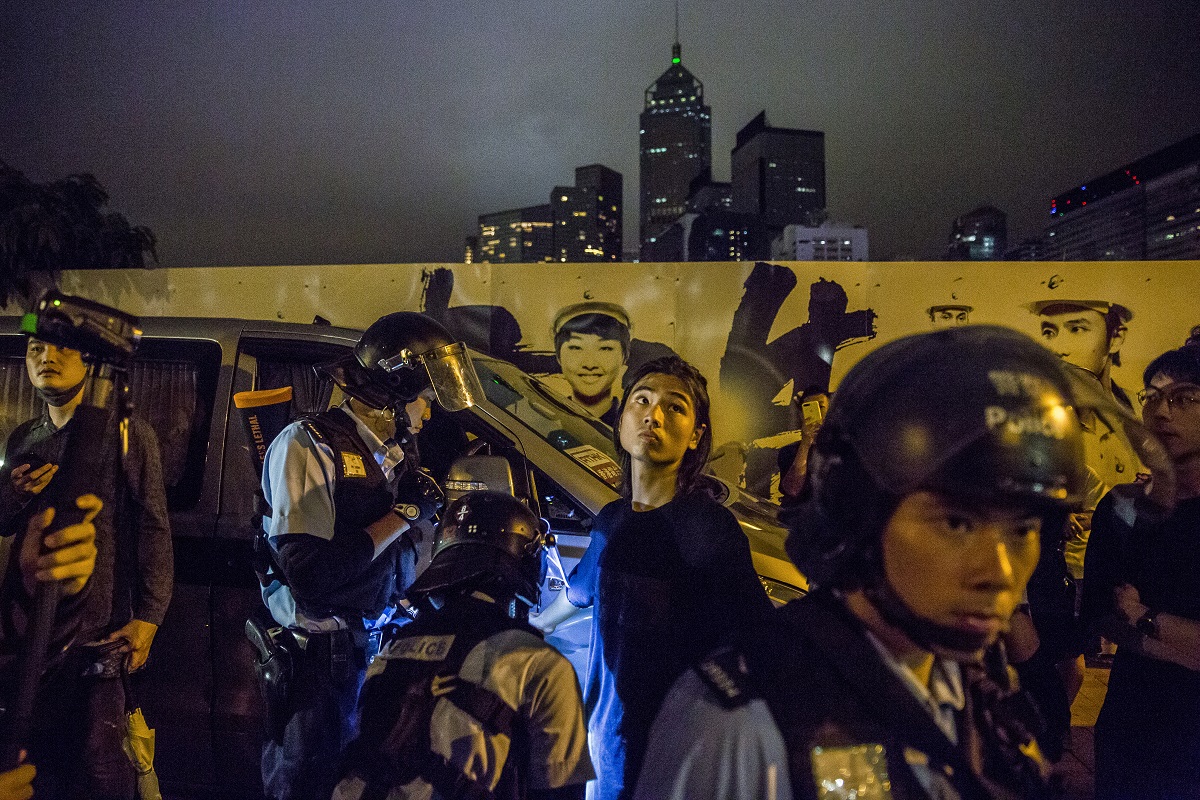Still unexplained
The hunt for the origins of Covid-19 has for the past four years been a tangled web of politics, power struggles, and international finger-pointing.
The protests were peaceful until midnight, when police and demonstrators clashed after attempts to disperse some people from the area outside the legislative offices.

Police search a man outside the Legislative Council Complex in Hong Kong late on June 11, 2019, two days after the city witnessed its largest street protest in at least 15 years as crowds massed against plans to allow extraditions to China. Scores of Hong Kong businesses have vowed to shut on June 12 and protesters have planned another mass rally outside the city's parliament as anger builds over the government's push to allow extraditions to China. The financial hub was rocked by a huge protest march over the weekend -- the largest since the city's 1997 return to China -- as vast crowds called on authorities to scrap the Beijing-backed plan. (Isaac LAWRENCE / AFP)
Hong Kong is on the boil once more.
The huge turnout of people of the island nation on Monday in protest against a proposed extradition law was reminiscent of the Umbrella movement a couple of years ago. The bill creates a system for “case-by-case fugitive transfers” between semiautonomous Hong Kong and regions with which it does not already have agreements, including mainland China.
Both sides are equally defiant, pre-eminently Hong Kong’s chief executive, Carrie Lam, whose response to the people’s movement has been less than reassuring ~ “This bill is not initiated by the [Chinese] central people’s government. I have not received any instruction. Opposition to the bill was a result of a misunderstanding.”
Advertisement
She has, in point of fact, played to the Beijing gallery. The populace of the island nation, which remains a protectorate of China, fears that the legislation is being pushed by the government in Beijing. Fears that the bill will be used to extradite activists, dissidents and political opponents who “will end up in China’s opaque and politicised courts” are dangerously real. It will not be easy for Ms Lam to convince the people even with a mildly positive assurance as any such assurance will hinge on China’s concurrence.
The respective attitudes ~ in favour of and virulently against the bill ~ have stiffened on either side of the people/government divide. Hong Kong’s administration is determined to pass the bill before July, and the immediate compulsion is the case of a man wanted for the murder of his girlfriend in Taiwan. “Hong Kong has to move on,” Ms Lam said. “Nobody wants Hong Kong to be a fugitive offenders’ haven.”
Theoretically, she may be right. However, it is the one size-fits all formula that appears to have alienated the colony. On Sunday, hundreds of thousands of people marched in opposition to the bill. Organisers estimate that one million people took part in the march, a turnout that would make it the city’s biggest protest since its handover by Britain to China 1997. Enormously palpable is the groundswell of opposition to the remote control or what they call “increased encroachment” by Beijing.
The protests were peaceful until midnight, when police and demonstrators clashed after attempts to disperse some people from the area outside the legislative offices. Leaders of the prodemocracy movement anticipate that there will be more protests if the government does not adequately respond to Sunday’s enormous public resentment.
It has even been suggested that the government was “saying no to democracy and suppressing human rights and the rule of law”. More than two decades after the handover to China, Hong Kong is direly fractured, and the awesome crack is between the government and the people.
Advertisement